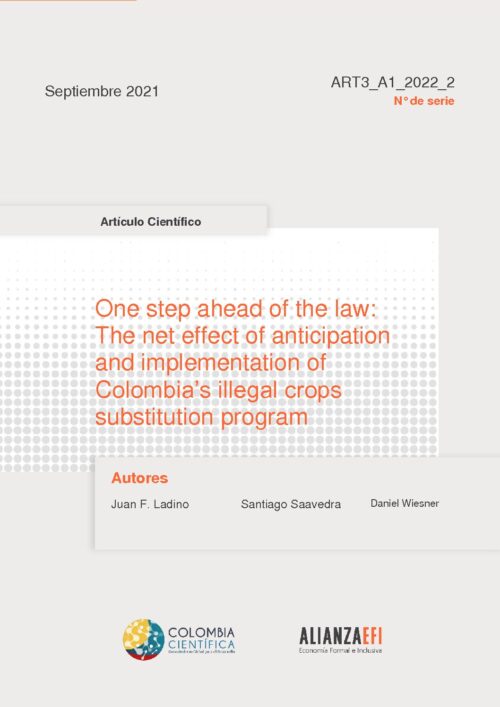Pre-announced policies often generate unintended consequences due to individuals’ acting to take advantage of the policy conditions. Little is known about the extent to which unintended consequences from the early announcement of a policy can be larger than the implementation effect, especially in contexts of weak state capacity. We use detailed 1 km grid square data on coca cultivation to estimate the net effect of the announcement and implementation of coca crop substitution payments in Colombia. Our fine-grain data also enable us to estimate geographical spillovers of the program to non-targeted neighboring areas. Using a difference-in-differences empirical strategy, we find that program recipients reduced coca acreage. Surprisingly, the reduction in neighboring grid areas is of a similar magnitude. However, the effectiveness was reduced by half, because farmers increased coca cultivation in order to be eligible for the program after the announcement and before implementation. But the policy’s net effect is negative: due to weak state capacity, the program could not be implemented in every region of the country.
Autores:
- Daniel Wiesner
- Juan F. Ladino
- Santiago Saavedra
Palabras clave:
- Coca
- Colombia
- Illegal markets
- Policy announcement
- Unintended consequences
Categorías:
- Proyecto 3
- Publicación
